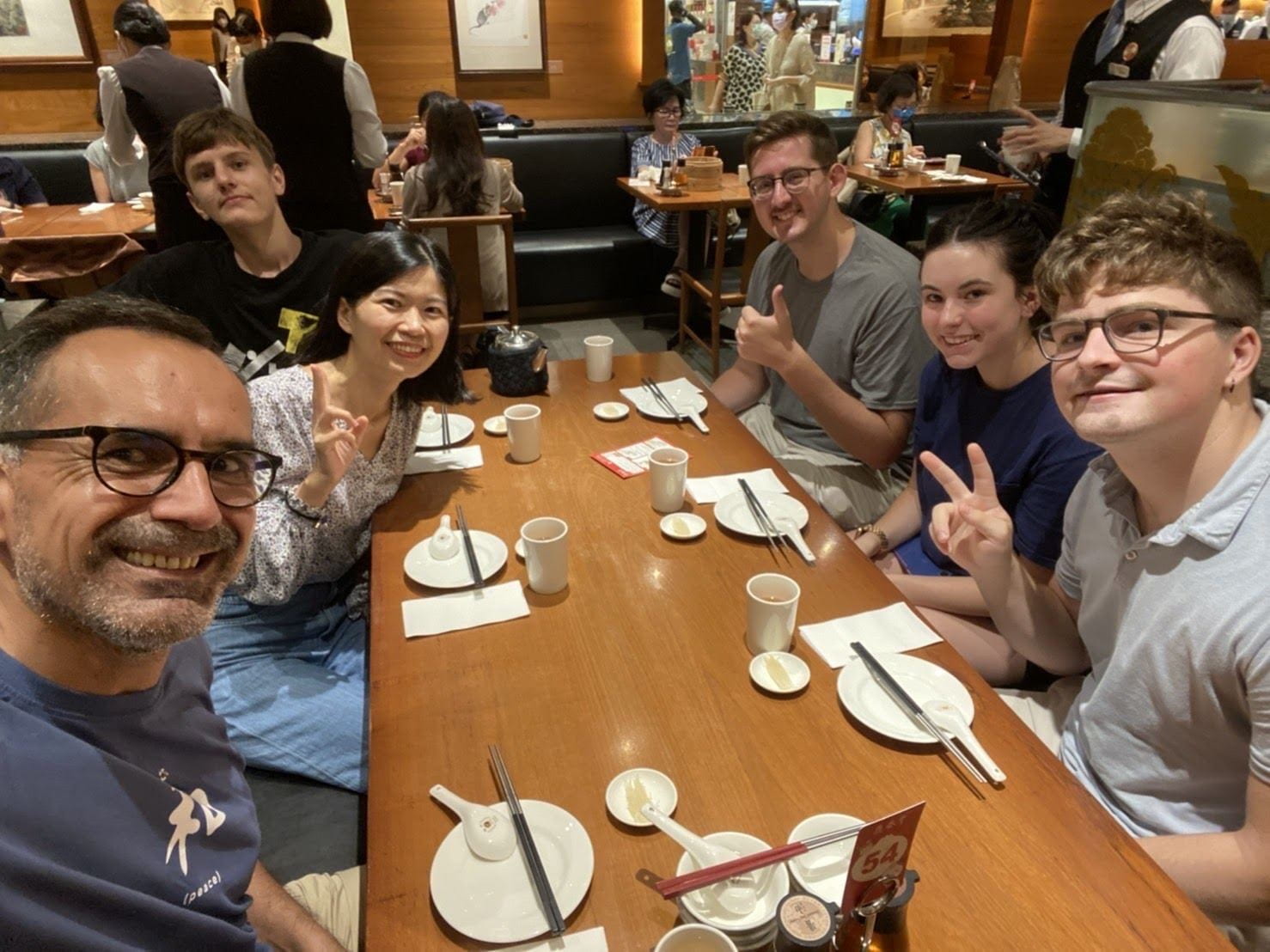
Only 100 miles away from China, it would be easy to assume that Taiwan would only have Chinese food. While it is true that Taiwan’s cuisine shares a heavy resemblance to China, Taiwan’s eating scene is as rich as its culture and stands as a symbol of pride to many of its inhabitants. Over the centuries, Taiwan’s rich indigenous cuisines have combined with Fujian and Cantonese flavors, to create a new style of Asian cuisine, one whose rich umami flavor and sweet undertones welcome new opportunities for culinary exploration.
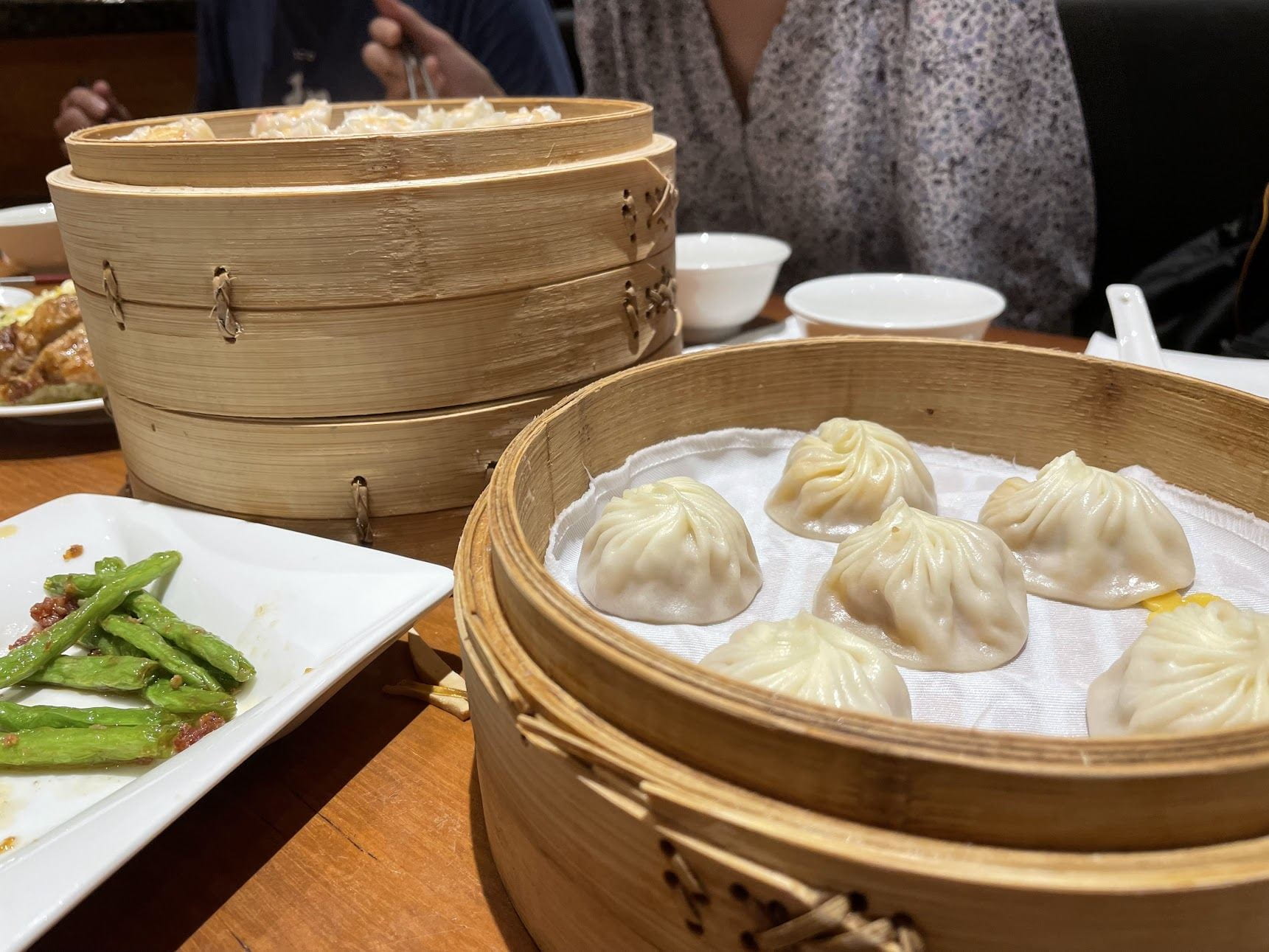
Photo caption: Delicious soup noodles at one of Taiwan’s famous Din Tai Fung 鼎泰豐
At the same time, Taiwan’s global economy has invited millions of people from all over Asia, most of whom have brought along their tastes and flavors. Taiwan’s culinary environment is rich with global influences from Europe, Africa, and the Americas, not to mention local Asian cuisines from South, East, and Southeast Asia. No matter the appetite, be it Bolognese, Vindaloo, Injera, or Congee, a quick trip down the street is sure to satisfy.

Photo caption: Modern Toilet Restaurant in Taipei, a poop and toilet inspired café! One of the many wacky themed restaurants around Taiwan
In big cities like Taipei, Taichung, and Kaohsiung, the economic and cultural hearts of the island, tastes from across the globe are as easy to find as bubble tea shops. In the rural west coast outskirts or the mountainous east coast villages, delicious Taiwanese barbecues and stews await more adventurous travelers.
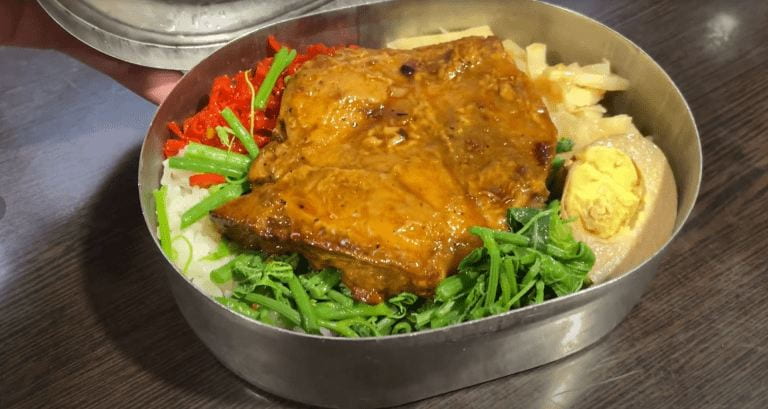
Photo caption: Old-fashioned bento box meal for workers who used to cut wood on the old Alishan Forest Railway
Taiwan’s numerous night markets also provide plentiful appealing delights for tourists and locals alike. Even the convenience stores showcase a wide swath of healthy and tasty treats from all over the world, assuring that no matter the time or the place, you’ll never go hungry in Taiwan.
Unlike similar stores in the United States, Taiwan has given convenience stores a whole new meaning. On nearly every street corner of any major city, you’re bound to find a 7eleven, Hi Life, or Family Mart, waiting eagerly to satisfy your insatiable snack cravings, chips, candy, and drinks galore. Many convenience stores have eating areas with benches and seats for patrons to enjoy their snacks in place. Moreover, many of these stores also have premade dinners, fresh salads, and bite-sized breakfasts that make stopping in for a meal cheap and, well, convenient.
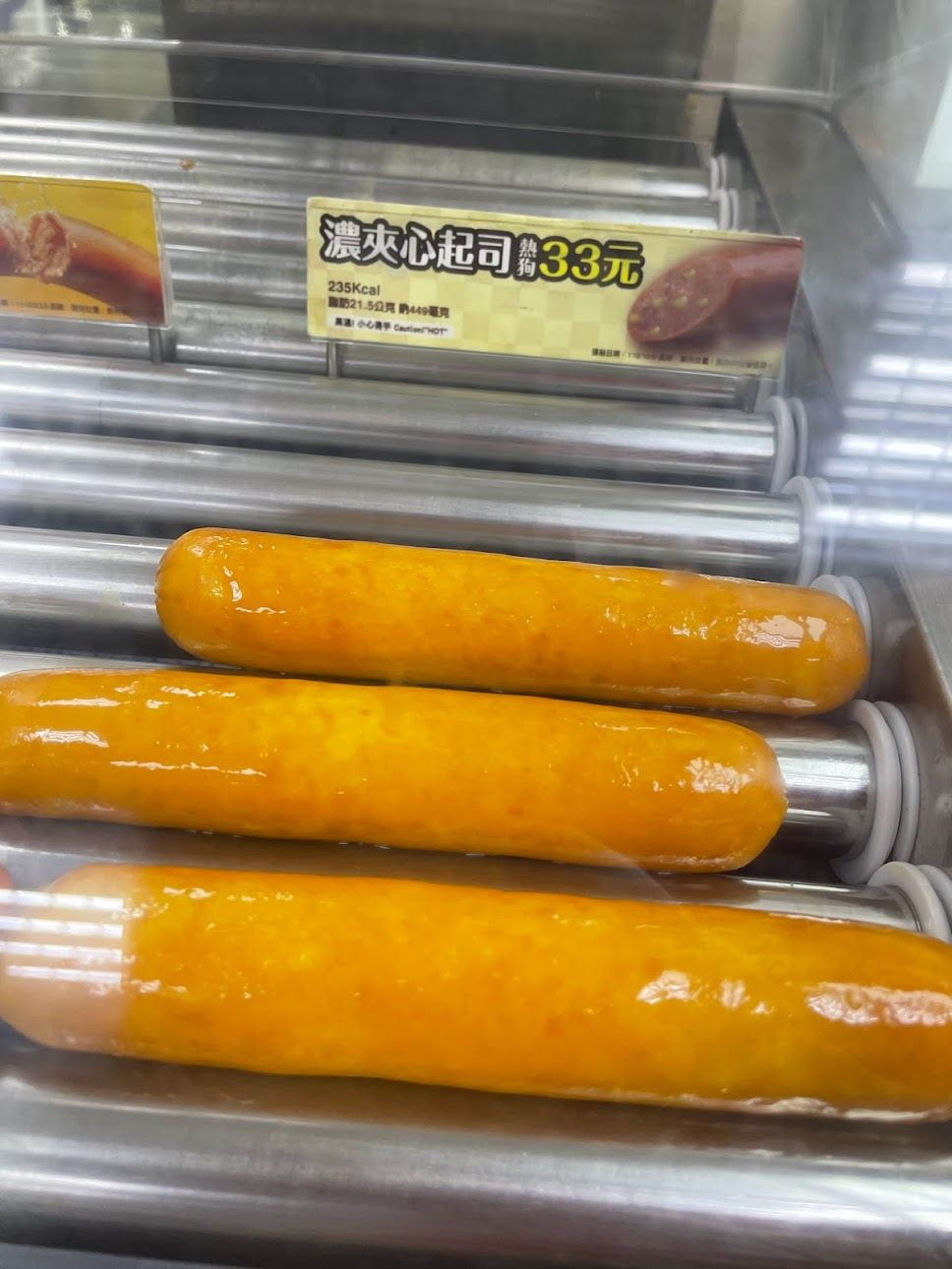
Photo caption: Of course, no convenience store would be complete without rotisserie hotdogs. These ones in particular are cheese flavored!
However, to find the perfect example of Taiwan’s excellent food culture, look no further than the classic nighttime venue for locals and tourists alike: night markets, a classic amalgamation of outdoor feasting activities, combined into a single place for everyone to enjoy. Of course, besides the usual gamete of Taiwanese staple foods, including Stinky Tofu (臭豆腐), Sweet Potato Balls (地瓜求), Oyster Omelets (蚵仔煎), and Bubble Tea (珍珠奶茶), night markets attract a huge array of delightful foreign foods including Italian pasta, Indian Curries, and South American tamales, just to name a few.
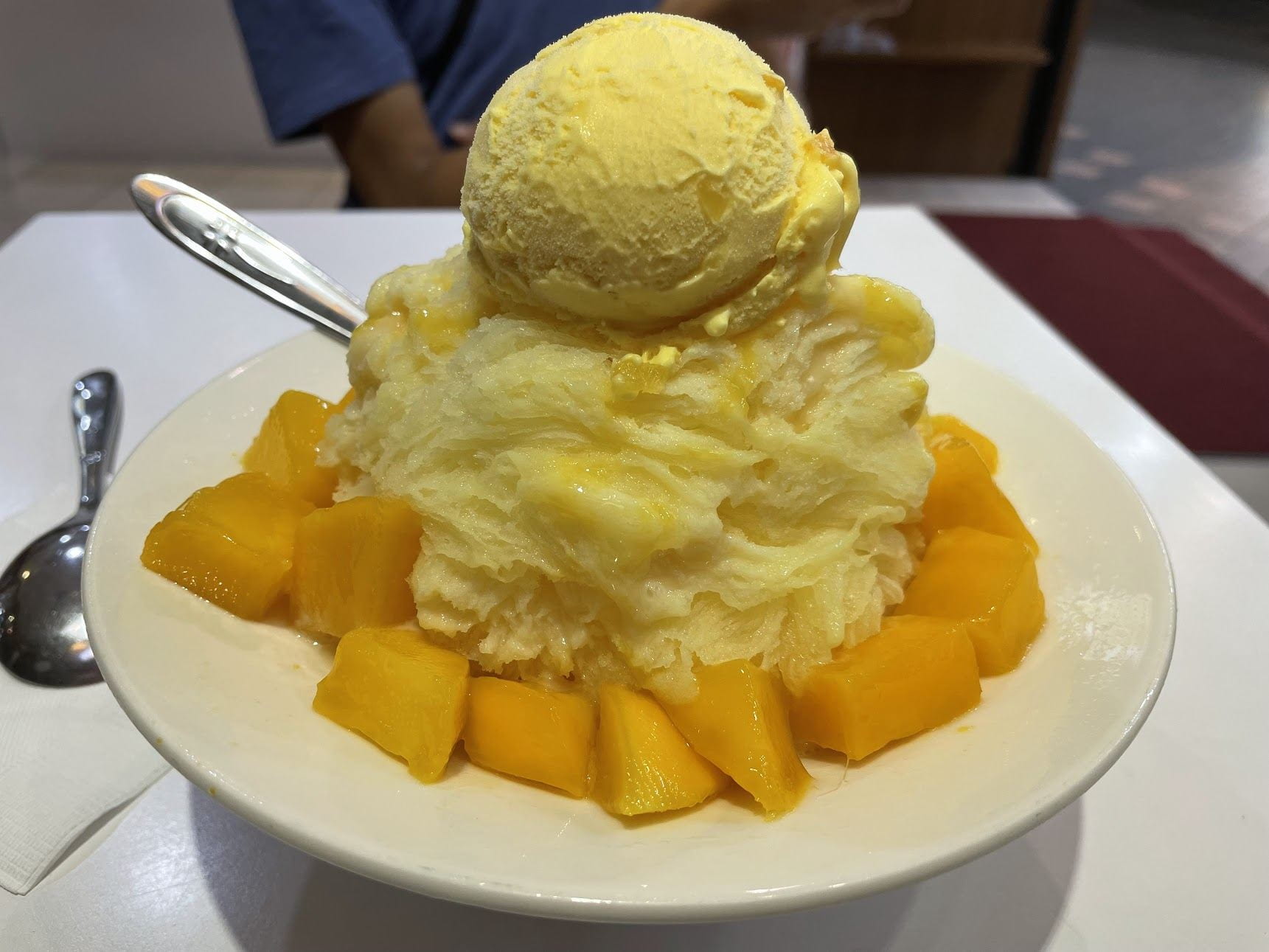
Photo caption: One of my favorite Taiwanese desserts: Taiwan Shaved Ice. This one here is mango flavored.
Imagine state fair snacks and games, farmers’ market produce, and flea market stalls, all clumped together in the same place, every night, 365 days a year. Night markets provide the perfect setting to try new treats and discover a whole new culinary palate, both fresh and fried (and sometimes on a stick).
While night markets and convenience stores highlight the wide diversity in tastes and flavors, they are only the tip of the culinary iceberg. No matter where you go in Taiwan, you’re bound to discover new and exciting meals. Every Taiwanese person has their own peculiar set of tastes that ultimately affect Taiwan’s cuisine. Taiwan’s food culture is in a constant ebb and flow, shifting with the times and tastes of its people. Nonetheless, Taiwan’s rich history and the situation in the increasingly globalized world ensure that no matter where one visits the country, they are bound to find something delicious.
Mark Warburton, B.A. International Affairs, Political Science 2023
Sigur Center 2022 Asian Language Fellow
National Taiwan University, Taiwan

